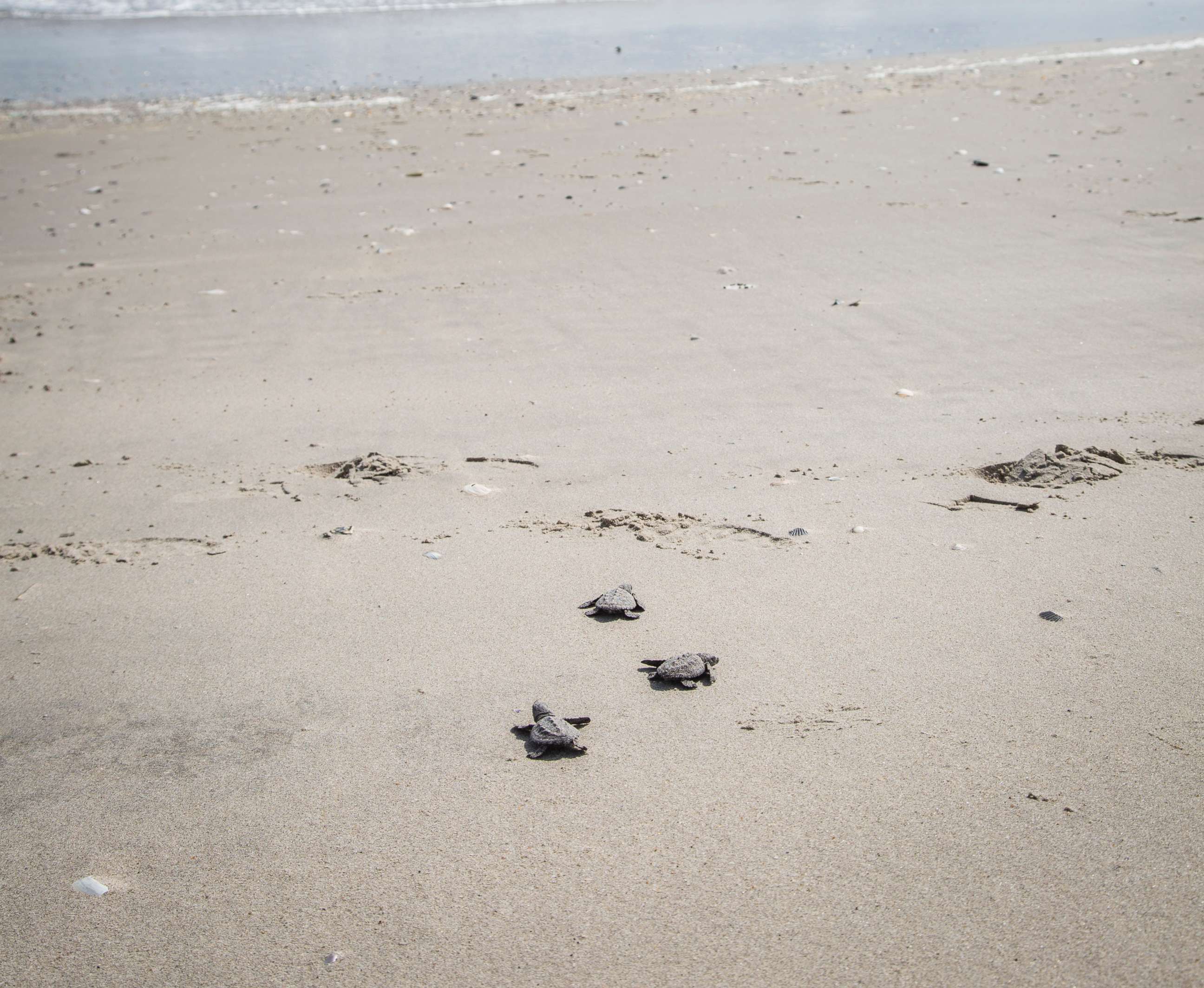Dozens of endangered baby sea turtles hatched in New York City and crawled to the sea
Ninety-six hatching of the world’s most endangered sea turtle crawled to the sea
In a miniature display of mass determination, 96 rare baby sea turtles hatched and crawled to the ocean from their nest on a New York City beach this week, according to the National Park Service.
The most endangered and the smallest species of sea turtles, known as Kemp's ridley sea turtles, crawled out to sea on the Rockaway Peninsula in Queens on Friday in what experts said was an unprecedented phenomenon.
"This is the furthest north [a Kemp's ridley sea turtle nest has ever been documented], so it's very unusual that this turtle came to a beach in Queens, New York to nest,” Patti Rafferty, chief of resource stewardship for Gateway National Recreation Area, a 26,000-acre U.S. National Park Service area in New York and New Jersey, told ABC News.
“This isn't where she would usually come to nest, and then for the eggs to actually successfully hatch. It's a pretty amazing thing,” she said.

This isn't where she would usually come to nest, and then for the eggs to actually successfully hatch. It's a pretty amazing thing.
A female Kemp’s ridley sea turtle crawled up the beach on the Rockaway Peninsula and built a nest in mid-July, according to Rafferty.
National Park Service (NPS) workers excavated the nest to save it from extreme high tides. Staff were able to save and incubate 110 eggs. Of those, ninety-six have hatched and crawled back to the sea.
Kemp's ridley sea turtles are mainly found in the Gulf of Mexico, according to an NPS statement.
“Juveniles, probably carried by currents, can be found as far north as Nova Scotia along the Atlantic Coast,” Rafferty said in the statement, noting that fishing and human activities are the main causes for the decline in the population of this species of sea turtles.
“It has a very low population, and so a very low population relates back to harvesting the turtle for food or harvesting the eggs for food,” Rafferty said.
The lights associated with development are particularly problematic for female sea turtle who come ashore to lay a nest. Female turtles will avoid well-lit beaches and lights disorient hatchlings.
The Kemp’s ridley sea turtle was listed in the United States as endangered in 1970.




